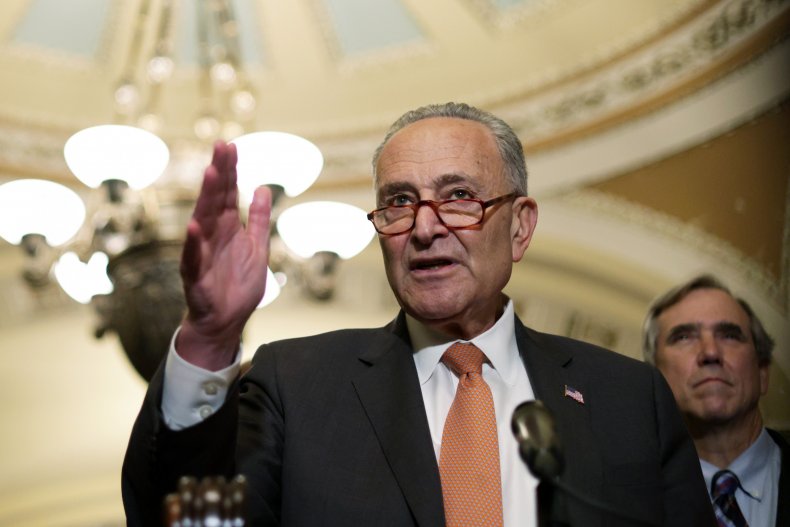Infrastructure Bill Update as Senate Prepares to Pass $1T Bipartisan Plan
The Senate appears poised to pass the $1 trillion bipartisan infrastructure bill as debate on the measure is set to conclude on Tuesday and the House of Representatives prepares to take up the legislation later this year.
Senate Majority Leader Chuck Schumer (D-NY) announced late on Monday the debate would end at 11am ET on Tuesday morning and that the Senate would then proceed to a vote.
The bill is expected to pass as enough Republicans have supported its advancement throughout the process, with 68 senators voting to advance the bill on Sunday. Eighteen of those votes were from Republicans.
However, the process has been slowed by Senator Bill Hagerty (R-TN) who called for more debate on the infrastructure bill on Sunday morning.
Hagerty called the bill a "socialist debt bond," but despite the continued debate, it's still expected to pass.
Schumer discussed the impending passage of the bill on the Senate floor on Monday night, saying: "This is a very good day."
"We have come to an agreement after all the long hard negotiating, the stops and starts, we're here. And it's a good thing, a very good thing for America," he said.
"The Senate can be proud it has passed this," Schumer said. "And as we move forward we're proceeding on both tracks. The track of the bipartisan infrastructure proposal, and the track of the budget resolution with reconciliation instructions. On our side of the aisle, we know we need both tracks: one dealing with traditional infrastructure, one dealing with climate and the problems American families face."
The Senate pushed the bill over the final procedural hurdle on Sunday with a vote of 68 to 29, with three members not voting. That could give some indication of the GOP senators who will support the bill at the final vote. All the "nay" votes and abstentions were Republicans.
Senate Minority Leader Mitch McConnell (R-KY) has expressed his support for the bill and voted to advance it on Sunday along with 17 of his GOP colleagues.
The other Republican senators who voted to advance the bill on Sunday were: Roy Blunt of Missouri, Richard Burr of North Carolina, Shelley Moore Capito of West Virginia, Bill Cassidy of Louisiana, Susan Collins of Maine, John Cornyn of Texas, Kevin Cramer of North Dakota, Mike Crapo of Indiana, Deb Fischer of Nebraska, John Hoeven of North Dakota, Lisa Murkowski of Alaska, Rob Portman of Ohio, Jim Risch of Idaho, Mitt Romney of Utah, Dan Sullivan of Alaska, Thom Tillis of North Carolina and Roger Wicker of Mississippi.
Senator Todd Young (R-IN), who had been part of the team negotiating the bipartisan bill, voted no on Sunday and said he would also reject the bill in the final vote.
Young said in a statement that he was "not yet comfortable with the current pay-fors in this legislation nor am I comfortable with Speaker [Nancy] Pelosi's continued insistence on tying passage of this bill to the Democrats' $3.5 trillion reckless tax-and-spend budget proposal."
Once the infrastructure bill has passed, Senate Democrats will begin working on a separate $3.5 trillion infrastructure package to be passed by budget reconciliation, which will contain funding for "human infrastructure" among other Democratic priorities.
Both infrastructure packages will have to be passed by the House of Representatives, which is expected to take up the $1 trillion bipartisan bill in late September following its summer recess.
Newsweek has asked Senate Majority Leader Chuck Schumer for comment.


